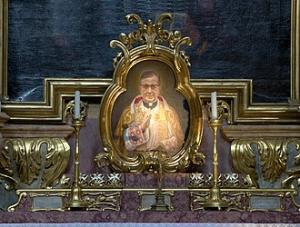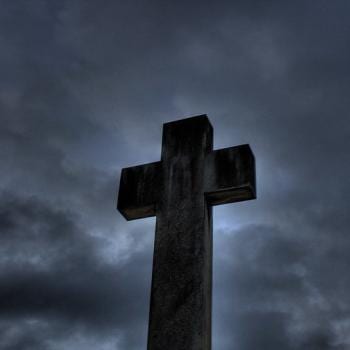
Msgr. Mariano Fazio, the second-ranking official in Opus Dei, has been named as a defendant in a human-trafficking complaint in Argentina. Four priests who served as authorities in Opus Dei in Argentina between 1991 and 2015 were also charged. They are: Fr Carlos Nannei, Vicar General from 1990-2000, Fr Patricio Olmos regional vicar general from 2000-2010, Fr Víctor Urrestarazu, regional vicar, 2014, and Fr Gabriel Dondo, former director of the women’s branch.
- Recruiting women, many while still minors, with false promises of education and a better life.
- Subjecting them to a regime of semi-slavery, including grueling workdays without pay.
- Exploiting their vulnerability and isolating them from their families and the outside world.
- Psychological manipulation and indoctrination.
Msgr Fazio is charged specifically with using a woman to serve him on an involuntary basis. Opus Dei denies the charges, saying they are a “complete decontextualization of the freely chosen vocation of the assistant numeraries.” The Vatican reviewed a complaint filed by the women in 2021 and ordered reforms in Opus Dei. I don’t know the particulars, but that would seem to imply that even the Vatican sided against Opus Dei and with the women.
I served on the board of All Things New, an organization that was dedicated to providing shelter and healing for women who had been victims of sex trafficking. Law enforcement agencies, including the FBI referred many of the women the organization helped. To be honest, the things Opus Dei is charged with sound like the tactics used by pimps and sex traffickers the world over.
From Financial Times:
Opus Dei is charged with establishing the recruitment of young girls, of minor age from low-income, rural families as a “deceitful selection” that took “advantage of their extreme vulnerability”. They said the women were “enticed” by promises of education and job opportunities, but were then “trapped in a cycle of exploitation and abuse”, working 14-hour days with barely any rest.
The prosecutors — Eduardo Taiano, head of the national prosecutor’s office, as well as María Alejandra Mángano and Marcelo Colombo, co-heads of the Office of the Prosecutor for Human Trafficking and Exploitation — said the women did not receive salaries, which were instead given to the organisation. They said the women’s access to medical care and the outside world was heavily controlled. “In short, these women were subjected to extreme labour exploitation, with a total lack of fair remuneration and basic rights, all under the pretext of ‘sacrifice’ and ‘spiritual salvation’,” the prosecutors said.
From National Catholic Reporter:
“Hell,” was the single-word answer posted by one.
Another posted: “Non-stop work. Loneliness. Grief.”
Others shared stories about how they weren’t allowed to spend time with their blood relations on Christmas Day, even if they only lived around the corner. The rationale given to them by their “local director” — the head numerary tasked with watching over them and passing down orders from national headquarters — was that their real families were no longer their blood relations, but those they lived with at the Opus Dei residence. Any gifts received were collected and “redistributed” elsewhere.
The most painful stories were those of the numerary assistants: the “little sisters” who cooked and cleaned and served the numeraries — but who weren’t allowed to walk on the street outside unaccompanied. Many came from poor families and were recruited at “hospitality schools” run by Opus Dei, where they were promised an education and a chance of a better life — only to be pushed into joining because that was what God “wanted” and to refuse him was to condemn their families to an eternity in hell.
One recalled watching her fellow students — those that hadn’t yet been recruited — being sent home to their families while she was ordered to stay. She was just 16.
From The Guardian:
The first item Opus Dei gave 12-year-old Andrea Martínez was a pink dress. The second was a schedule that detailed every task for every minute of her day. Then, when she was 16, she was given a cilice – a spiked metal chain to wear around her thigh – and a whip.
In the late 1980s, Opus Dei, a secretive and ultra-conservative Catholic organisation, promised Martínez an escape from a life of poverty in rural Argentina. By attending one of their schools, they said, she would receive an education and opportunities.
“They told me I would study and progress. I thought with an education that later I would be able to help my family,” says Martínez, 50.
“But I became like a slave. They treated me like a slave, without any capacity to think or act or do.”












